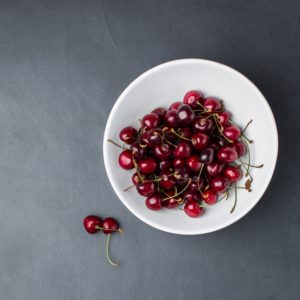Inflammation is a healthy, normal part of the body’s mechanisms to heal tissue & protect itself. It is the immune system’s response to trauma and infections. If we eliminated all inflammation, we would no longer have the protection we need to heal our bodies. In an acute injury or infection, the nervous system regulates the immune system to keep the inflammatory markers in balance. If this balance is off, it can lead to allergic reactions, autoimmune disorders, and chronic pain. Most chronic diseases, like heart disease, arthritis, cancer, depression, and Alzheimer’s, are linked to chronic inflammation. It’s important to support the body with the right nutrients to lower stress, improve sleep, and strengthen immunity.
Inflammation from a Chinese Medicine Perspective
Inflammation is often thought of solely as a heat disorder because of the redness, swelling, and pain. While it is often treated as a heat disorder in Chinese Medicine, especially when acute, it isn’t always the primary issue.
Congestion and Stagnation of Qi and Blood
Chronic inflammation and stress can cause stagnation of qi and blood. “If there is free flow, there is no pain; if there is pain, there is lack of free flow” is a defining principle of Chinese Medicine. Eating foods that move qi and blood are essential to increasing circulation. This increased circulation provides the body with a fresh supply of blood in areas of inflammation and stagnation. Foods like pepper, eggplants, onions, garlic, ginger, and turmeric increase blood flow.
Cold Bi (Obstruction) Syndrome
Conditions like arthritis (called Bi (obstruction) Syndrome) may have a cold component. If the pain feels worse in cold weather, it is important to warm the body instead of clearing heat. Turmeric would be a great choice due to its anti-inflammatory properties. It is a very warming herb, however, that may not be great for everyone. It may be too warming to take everyday for red, swollen joints that get worse in the summer. Control the dosage to maximize the benefits without causing more heat in the body. Some people may take it daily during the winter months and reduce the dose or frequency during the hot, Texas summers.
Dampness
Dampness is another aspect of inflammation. For those experiencing water retention, bloating, swelling, nasal congestion and drainage, treatments in Chinese Medicine would focus on drying the damp. Humidity in our external environment and climate as well as the foods that we eat can affect the dampness in our bodies. Allergies with mucus and phlegm and digestive disorders with loose stools and bloating are a great example of this type of inflammation. Again, there may be a heat or cold component but it is crucial to target the dampness in the body as well. Celery and spirulina are great to drain damp and reduce swelling in the body. To provide a better balance, take these cooling foods with warmer spices like ginger or turmeric.
Yin Deficiency
In many chronic diseases, dehydration and lack of essential fatty acids can lead to yin deficiency. Yin is responsible for moistening and cooling the body. Deficiency of yin plays a huge role in continued inflammation. It is important to nourish yin by eating foods that are high in good fatty acids like omega 3s and gamma linoleic acid (GLA). Evening primrose, black currant seed and hempseed contain GLA and foods such as salmon, mackerel, herring, sardines and tuna contain omega-3 fatty acids. Drinking half your body weight in ounces of water (for 150 lbs person, 75 oz or ~9.5 cups of water) is important for all body systems to function optimally.
In summary, inflammation is unique for every body. Choose the anti-inflammatory foods that work best for you and your condition. There are many food lists that list tomatoes as anti-inflammatory. Indeed, they have anti-inflammatory and antioxidant properties but are part of the nightshade family which contain alkaloids like glycoalkaloid solanine that have pro-inflammatory properties. Some people find their inflammation gets worse with nightshades and others don’t notice a difference. Experiment with these foods to see what works for you! But these are my top picks for the 10 foods to reduce inflammation:
- Cherries
- Pineapple (or Bromelain)
- Leafy Greens
- Blueberries
- Salmon
- Avocados
- Celery
- Spirulina
- Nettle Tea
- Turmeric

